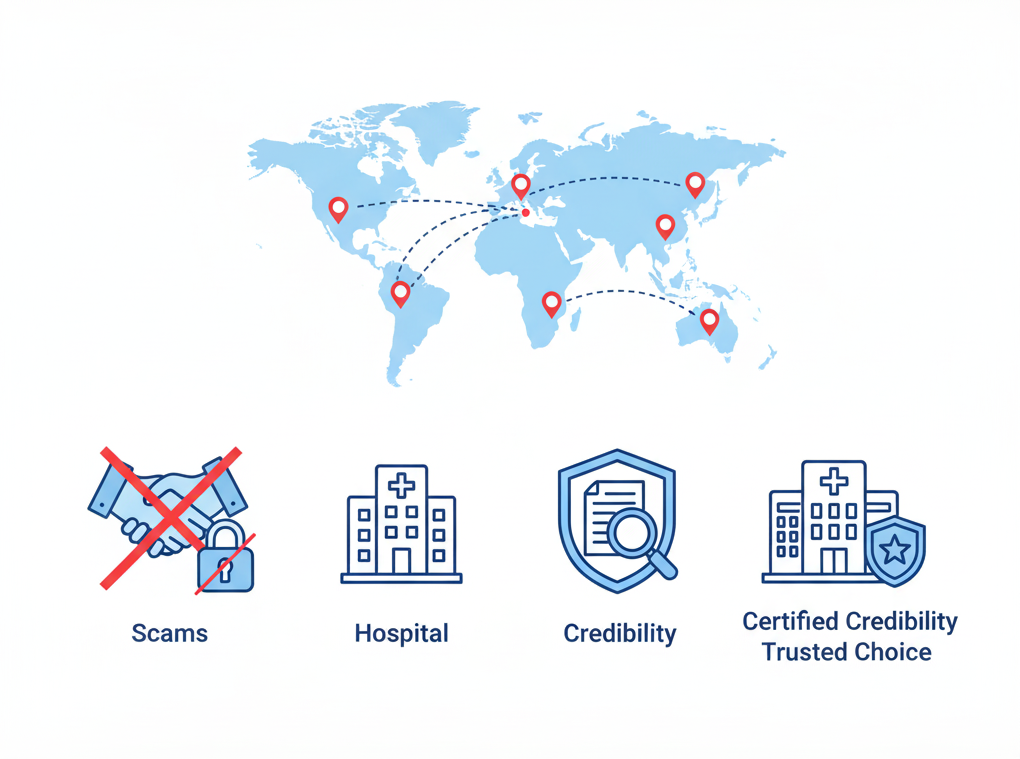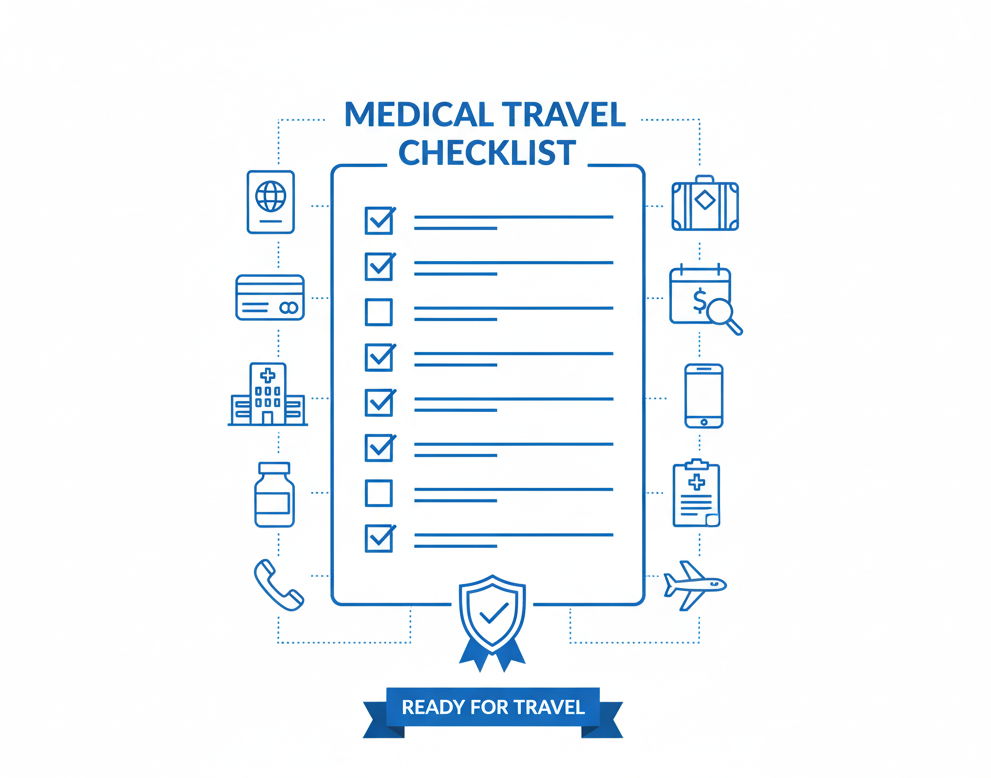
Medical Travel Insurance: What You Need to Know
Medical travel insurance is a critical component for anyone planning to travel abroad for healthcare in 2025. Whether undergoing elective surgery, dental procedures, fertility treatments, or complex surgeries, having specialized insurance coverage protects travelers from unforeseen medical and financial risks that standard travel or health insurance often does not cover. As medical tourism burgeons worldwide, understanding the nuances of medical travel insurance is essential for safe, secure, and smooth overseas medical care.
This extensive guide dives deep into what medical travel insurance is, why it's indispensable, coverage options it offers, how to pick the right plan, and expert tips to maximize your protection and peace of mind.
Why Medical Travel Insurance Is Crucial for Medical Tourists
Traveling internationally for treatment involves unique risks and costs unlike those of typical vacations or domestic healthcare:
-
Unplanned Complications: Even routine procedures can have unforeseen complications requiring emergency hospitalization, additional surgeries, or extended stays abroad, leading to exorbitant medical bills.
-
Medical Evacuation and Repatriation: If the local facility cannot treat an emergency or you prefer specialist care back home, evacuation by air ambulance can cost tens or hundreds of thousands of dollars.
-
Non-Coverage by Regular Policies: Most standard health and travel insurances exclude overseas medical procedures and related complications from coverage.
-
Trip Disruptions: Emergencies, pandemics, or sudden health changes may result in trip cancellations or curtailments, with prepaid expenses potentially lost without insurance.
-
Legal and Assistance Support: Medical travel insurance often includes assistance hotlines, multilingual support, and global healthcare networks to coordinate emergency care and claims, vital in unfamiliar medical environments.
In short, medical travel insurance offers financial protection and logistical support tailored to the complexities of overseas medical care.
Core Coverage Areas of Medical Travel Insurance
While policies vary, robust medical travel insurance plans encompass:
Emergency Medical Treatment
Covers hospital stays, consultations, surgeries, pharmaceuticals, diagnostic tests, and medical devices necessary due to unforeseen illness or complications post-procedure. This is the backbone of any medical travel insurance plan.
Medical Evacuation and Repatriation
Includes costs to transport you to a suitable medical facility within the destination or return you to your home country for treatment or recovery if local care is insufficient. This can be lifesaving but very expensive without insurance.
Trip Cancellation and Interruption
Protects prepaid non-refundable expenses if you must cancel or cut short your trip due to medical reasons, travel advisories, or quarantine mandates linked to your health or your healthcare provider’s situation.
Coverage of Complications from Elective Procedures
Some specialized plans provide post-surgical complication coverage, a vital feature given that elective surgery complications are specifically excluded in many traditional travel insurances.
Pre-Existing Condition Coverage
A key differentiator of top medical travel insurance plans is the option or inclusion of coverage for stable pre-existing conditions, which many patients have. Definitions and eligibility rules vary, making research imperative.
Additional Benefits
-
Coverage of lost or delayed luggage containing medical supplies or devices.
-
Emergency dental care related to accidents or pain.
-
24/7 global medical assistance services facilitating hospital admissions, consultations, translations, and claims processing.
How to Select the Best Medical Travel Insurance in 2025
Choosing the right plan involves:
Evaluate Your Current Coverage
Determine gaps in your existing health or travel insurance. Most exclude elective overseas procedures and complications.
Determine Coverage Amounts
Opt for insurance with high limits, preferably $1 million or more, especially in destinations with high healthcare costs or complex surgeries.
Verify Inclusions for Medical Evacuation
Ensure your policy includes comprehensive air ambulance and repatriation coverage, a frequent necessity in medical travel.
Understand Pre-Existing Conditions
If you have chronic illnesses, select plans with clear, favorable pre-existing condition coverage or riders.
Check for Specific Exclusions
Avoid surprises by clarifying exclusions such as cosmetic surgery complications, high-risk recreational activities, or experimental procedures.
Review Network and Support Services
Top insurers provide access to a wide network of international hospitals and 24/7 assistance for emergencies and claim facilitation.
Flexibility and Duration
Choose policies adaptable to your medical travel timeline, including extensions if your recovery takes longer than planned.
Cost vs. Coverage Balance
While cost matters, prioritize comprehensive coverage and quality of service over cheaper, limited plans.
Leading Medical Travel Insurance Providers in 2025
-
TuGo Travel Insurance: Provides extensive emergency medical coverage and pre-existing condition options with strong customer service.
-
Manulife: Offers customizable plans popular among Canadian medical travelers, including trip cancellation and medical rehab coverage.
-
Global Protective Solutions (GPS): Specialized in medical tourism insurance, offering inclusive plans that cover travel, lodging, and medical complications.
-
Blue Cross: Known for solid comprehensive international medical coverage complemented by travel assistance services.
-
Allianz Global Assistance: Offers broad international medical travel insurance with emergency evacuations and flexible trip options.
Practical Tips to Maximize Your Medical Travel Insurance Benefits
-
Purchase Early: Buy your policy promptly post-treatment booking to benefit from pre-existing condition stabilization clauses.
-
Carry Documentation: Always have printed and digital copies of your insurance certificate, emergency contacts, and claim procedure instructions.
-
Coordinate with Providers: Inform your destination hospital about your insurance to enable direct billing or streamlined reimbursement.
-
Report promptly: Notify your insurer immediately if any emergency arises or claims are to be made to ensure smoother processing.
-
Follow Policy Guidelines: Adhere strictly to requirements for treatment authorization, medication prescriptions, and follow-ups to avoid claim denials.










